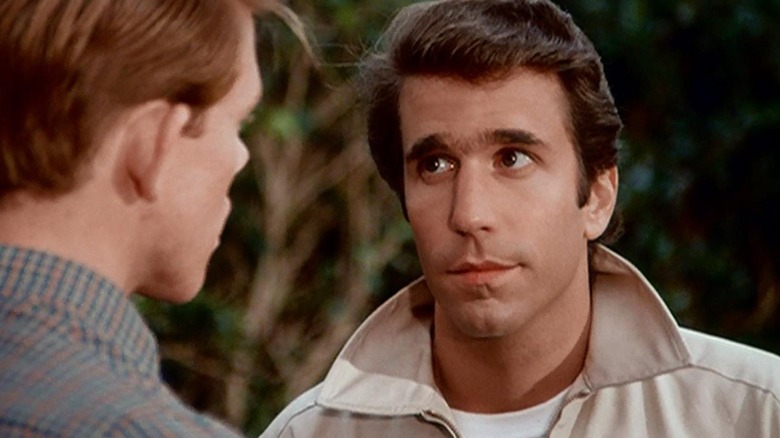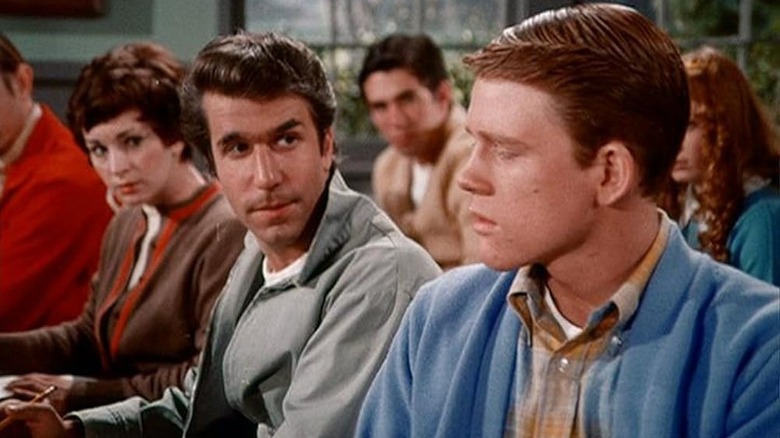Why Happy Days Script Readings Felt 'Humiliating And Shameful' For Henry Winkler
We may receive a commission on purchases made from links.
When Henry Winkler sauntered into television viewers' living rooms as Arthur "Fonzie" Fonzarelli in 1974, he was a complete unknown (unless you were really taken with his portrayal of Steve Waldman in the 1973 "The Dinner Party" episode of "The Mary Tyler Moore Show"). By the end of the series' 16-episode first season, he would be one of the most popular television stars on the planet, en route to turning Fonzie into a pop cultural icon.
Being closely identified with a character as indelible and, given the year-round cycle of new episodes and reruns, ubiquitous as Fonzie came with obvious drawbacks — and Winkler did indeed find himself typecast for a long period of time. But while this was personally frustrating for the actor, he was at least swimming in residual checks from the long-running show that made him a household name. There are worse problems to have.
And Winkler did have one very real problem that often made his time on "Happy Days" incredibly difficult. It's one that many other stars, most notably Tom Cruise, have dealt with, but even when you've identified it and received support from your co-workers, it can still be a crushingly sad affliction to deal with. What was Winkler's issue?
Dyslexia has been a lifelong challenge for Henry Winkler
In his 2023 memoir "Being Henry: The Fonz ... and Beyond," Winkler wrote about his lifelong struggle with dyslexia. Amazingly, he didn't realize he had the affliction until he was 31, but it certainly explains why he performed poorly in school — though his low grades couldn't keep him from getting accepted to the prestigious Yale School of Drama, from which he graduated in 1970.
In his memoir, Winkler writes that he felt "embarrassed, inadequate" at the same moment he was earning raucous entrance applause on every episode and appearing on kids' school lunchboxes. (You bet I had one of those.) According to Winkler:
"Every Monday at 10 o'clock, we would have a table reading of that week's script, and at every reading I would lose my place or stumble. I would leave a word out, a line out. I was constantly failing to give the right cue line, which would then screw up the joke for the person doing the scene with me. Or I would be staring at a word, like 'invincible,' and have no idea on earth how to pronounce it or even sound it out."
Winkler knew the entire cast understood how hard this was for him, but he still couldn't help but find it "humiliating and shameful" that he was making other people's jobs more difficult. "I had to ask for my scripts really early, so I could read them over and over again," he wrote, "Which put extra pressure on the writers, who were already under the gun every week, having to get 24 scripts ready in rapid succession."
For a long stretch of his life, Winkler felt angry at himself and his parents for something he had no real control over, but he ultimately managed to work through it. So, it's all the more impressive that he has a reputation for being one of the nicest guys in Hollywood (as does his "Happy Days" co-star Ron Howard, at least when he's not starring on "The Studio"). It also makes his richly deserved Primetime Emmy award for his performance in "Barry" all the sweeter. If you don't love Henry Winkler, that's a you problem.

